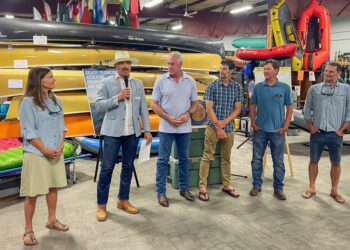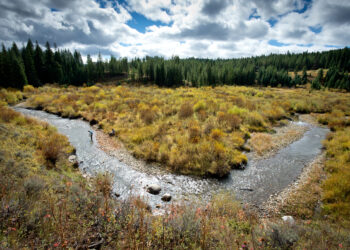By Benjamin Alva Polley EBS COLUMNIST
For the first time in 25 years, the Trump Administration is threatening to revoke the Roadless Rule, opening the door for major industries to exploit our public lands for private profit—at the expense of our natural heritage.
The Roadless Rule, established in 2001, protects about 45 million acres of pristine National Forest System lands by prohibiting new road construction, major logging and disruptive development, with only limited exceptions. Designed to safeguard wild areas for public recreation and maintain ecological balance, the rule has played a crucial role in defending these lands—yet now, it faces its most serious threat ever, as the U.S. Department of Agriculture proposes overturning it in 2025.
While many people picture remote Alaska’s Tongass National Forest or Alaska National Wildlife Refuge, the truth is that the Roadless Rule also protects millions of acres in the Lower 48, safeguarding beloved recreation areas. Iconic trails like the Continental Divide, Pacific Crest, and Appalachian pass through these precious landscapes, alongside over 10,000 climbing routes, 800 miles of whitewater runs, 10,000 bike trails, and an astonishing 25,000 miles of hiking paths. Without the Roadless Rule, the remote characteristics of these cherished places could be lost to destructive development.
Thanks to the Roadless Rule, these wild places remain unspoiled, serving as economic engines and cultural lifelines for countless small towns, and meaning a lot to the people whose homelands these places originally belonged to. They create jobs, shape local traditions and inspire meaning for communities across the nation. Protected lands aren’t just nature—they’re vital to our economy, powering $1.2 trillion in annual output, supporting more than five million jobs, and drawing 181 million Americans and 70 million international visitors every year.
Many people, myself included, cherish the solitude of venturing deep into roadless areas on foot. We find solace, respite, and even healing far from the noise of roads and machines. These places are essential for the soul and ecologically crucial for the planet. My heart soars when I hear birdsong drifting through an old-growth forest or the rush of a river over rocks. Escaping the clamor of modern life allows me to truly listen to my own thoughts.
Beyond that, roadless areas are critical for our planet’s health, shielding fragile ecosystems, filtering water, storing vast amounts of carbon, and helping fight climate change. Losing them would irreparably damage the vital natural services on which we all depend.
No matter your political beliefs, sacrificing these irreplaceable landscapes for short-term billionaire gains makes no sense. Once developed to logging or mining interests, these lands—and the experiences and livelihoods they support—are lost forever. There is no way to get them back.
If you value hiking or hunting in Montana’s Lee Metcalf Wilderness, horseback riding or climbing
in Wyoming’s Wind River Range or skiing in the Cascades, hiking in the Sierra Nevada, or
exploring any of our nation’s treasured places, now is the time to act. Add your voice to the movement and leave a public comment to defend the Roadless Rule before it’s too late—public comment period closes Sept. 19.
Benjamin Alva Polley is a place-based storyteller. His words have been published in Rolling Stone, Esquire, Field & Stream, The Guardian, Men’s Journal, Outside, Popular Science, Sierra, and other publications, and can be seen on his website.














